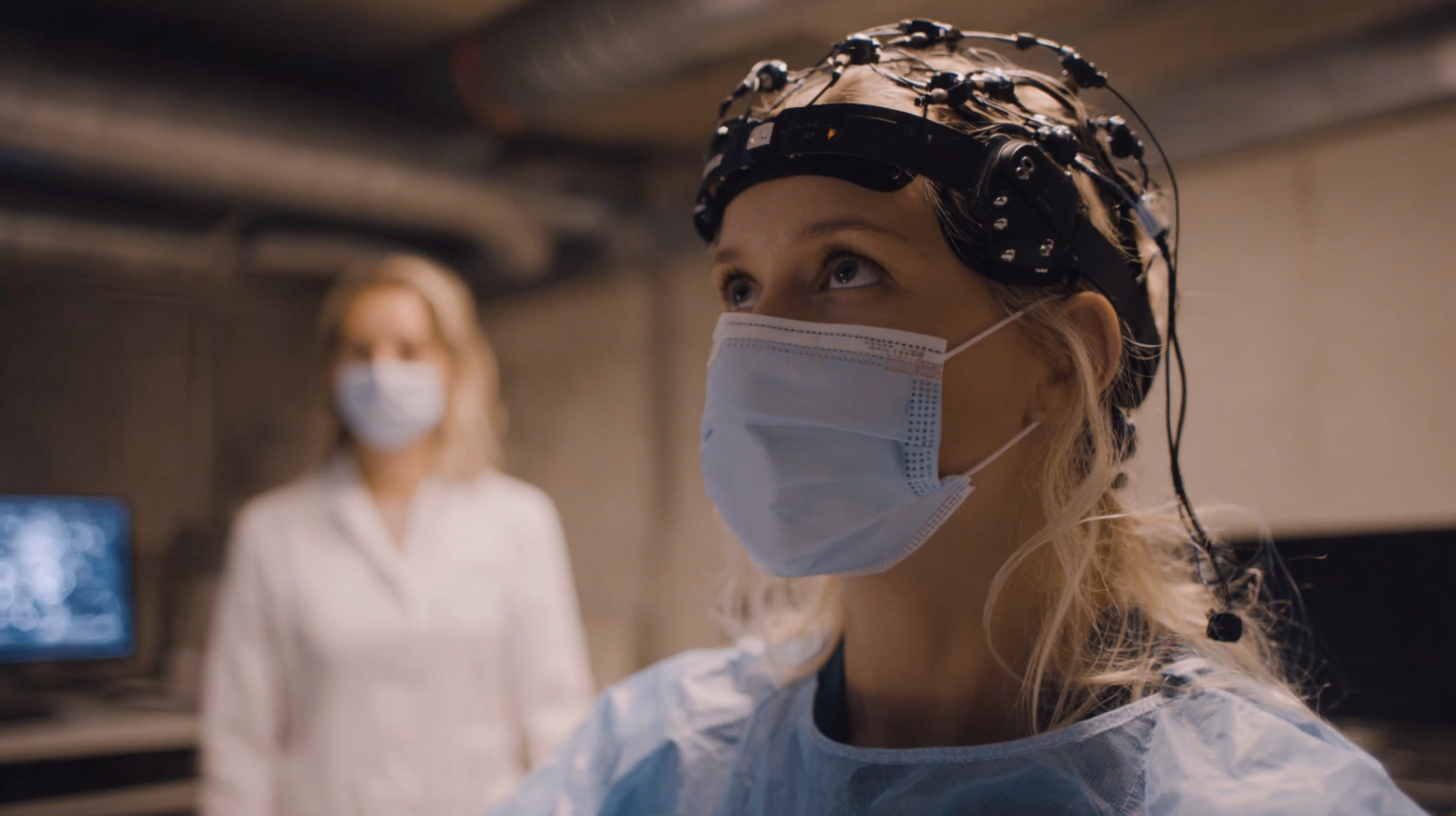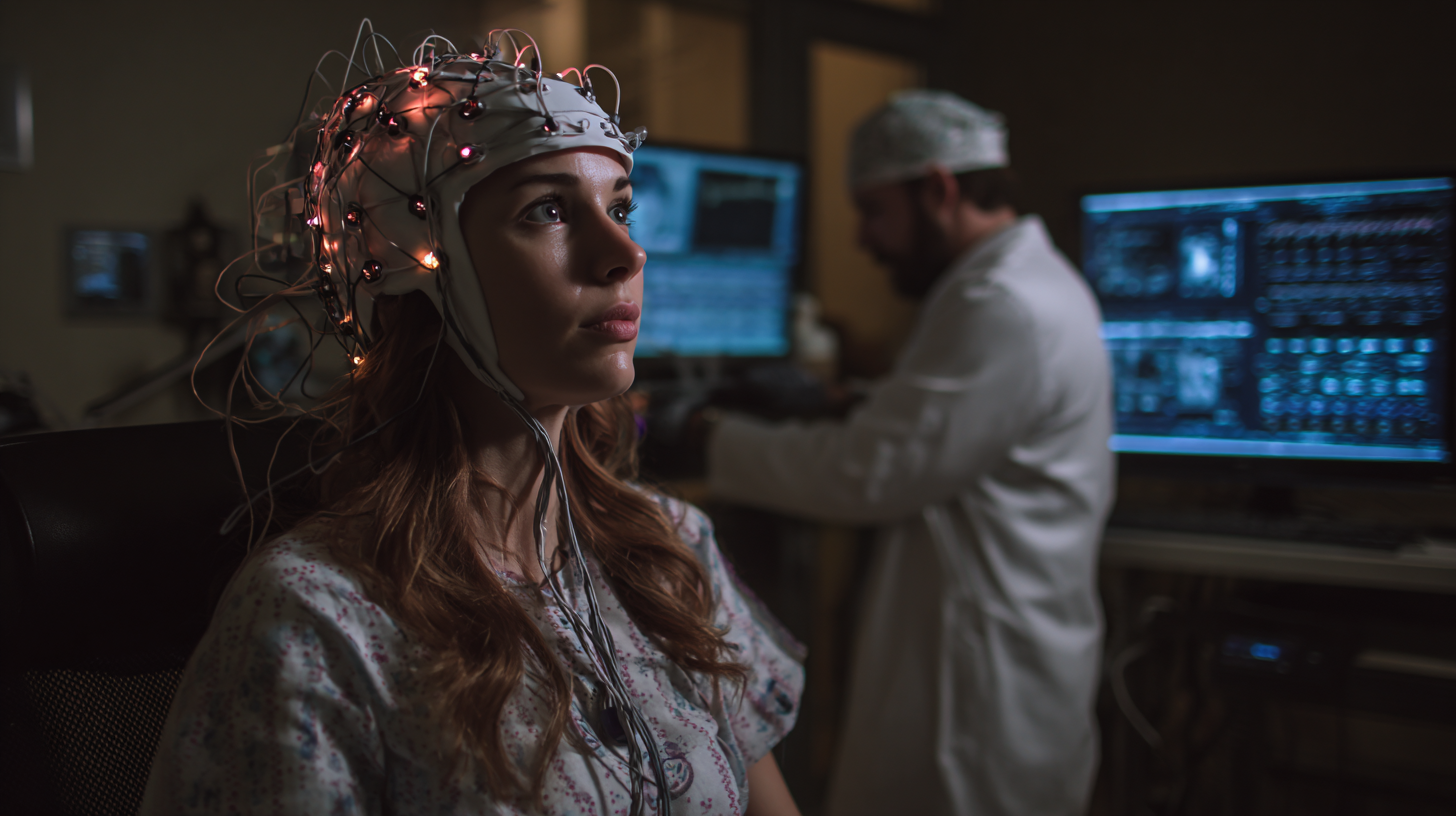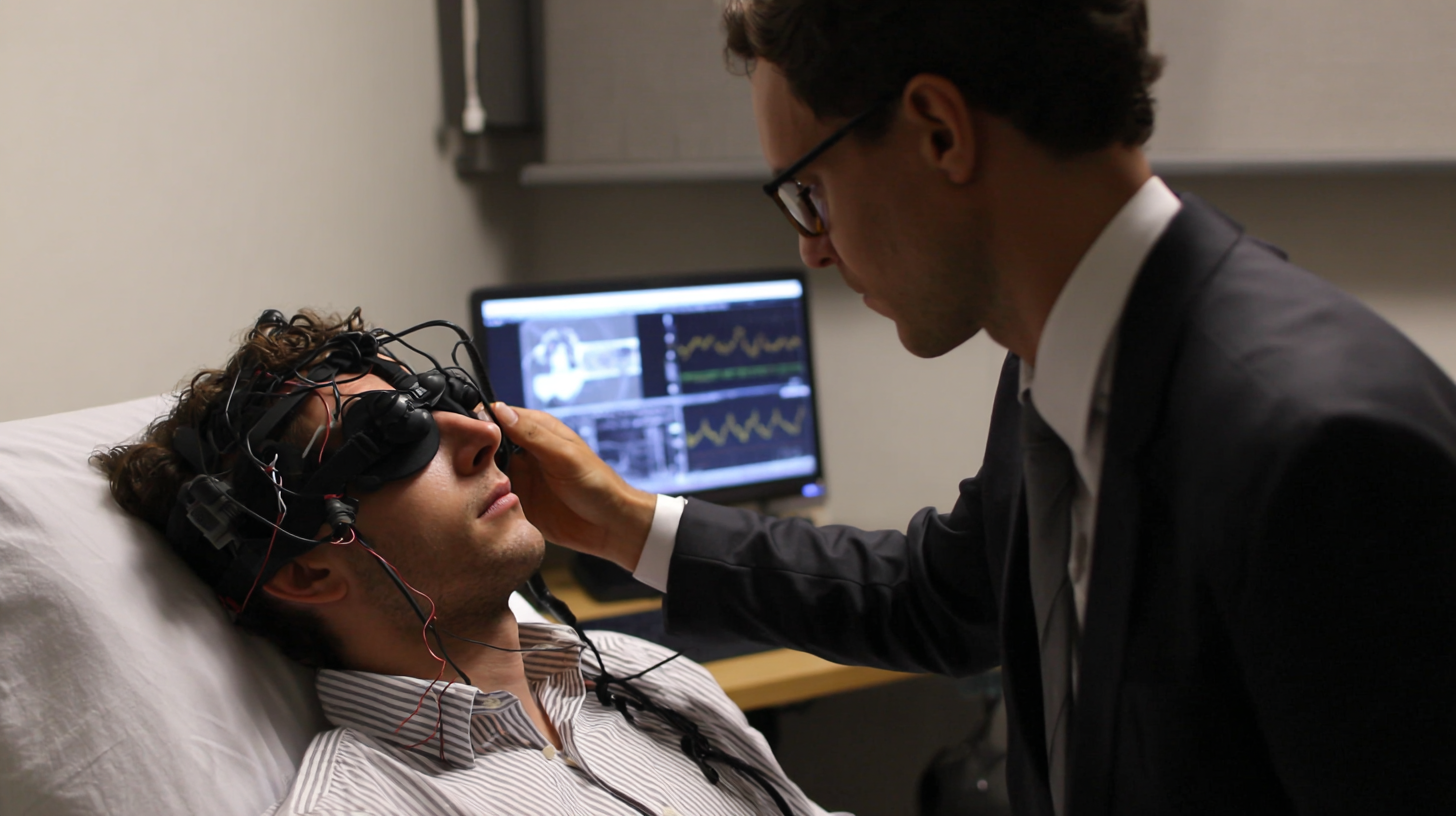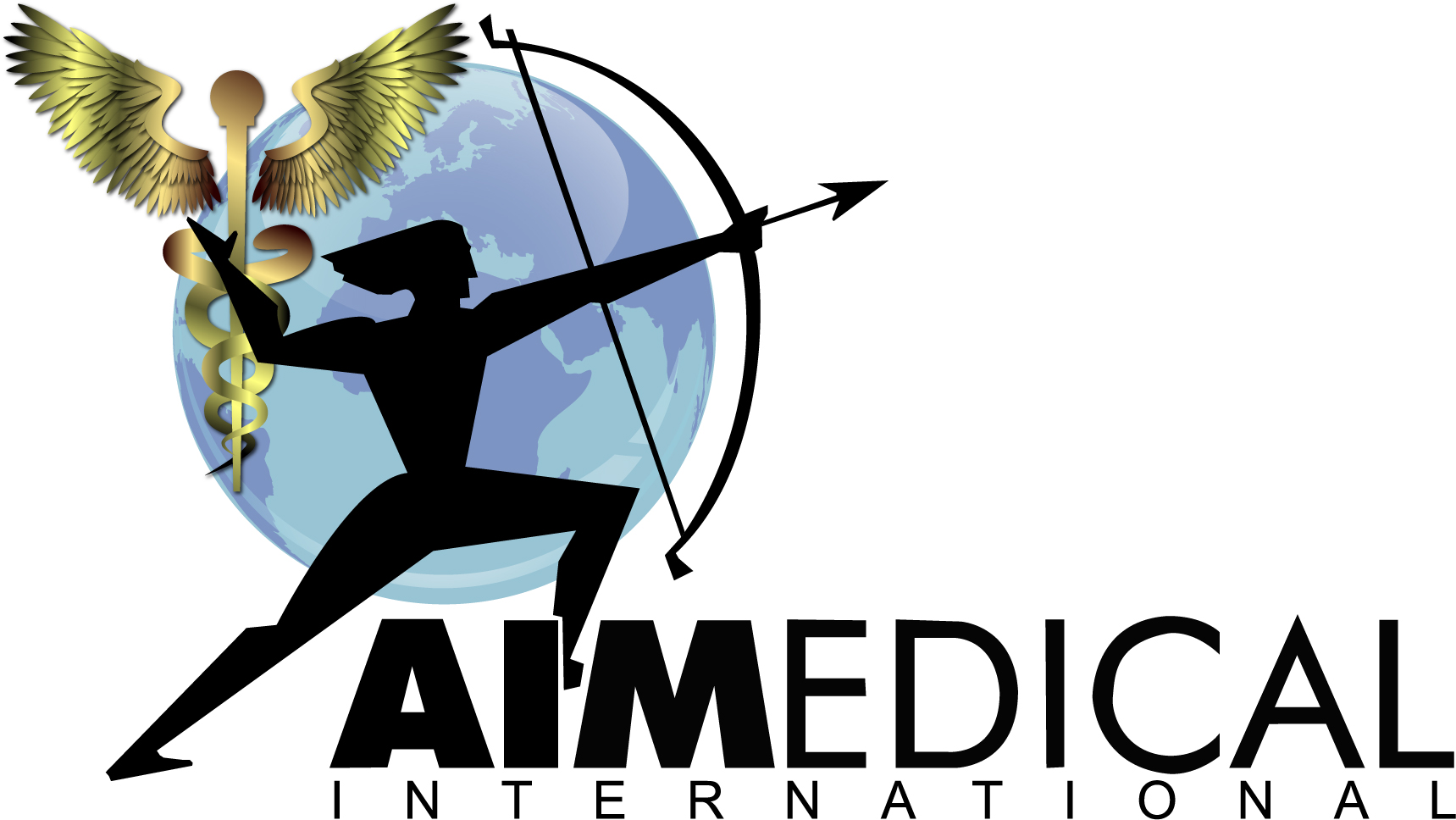Transformative Solutions for Advanced Transmagnetic Brain Stimulation Therapy in Mental Health Care
The mental health care industry is on the brink of a transformative breakthrough with the advancement of Transmagnetic Brain Stimulation (TMS) therapy. As reported by Grand View Research, the global TMS market is expected to reach approximately $2.4 billion by 2025, driven by the increasing prevalence of major depressive disorders and the growing acceptance of non-invasive treatment options. This innovative therapy has shown promising results in enhancing patient outcomes, which positions it as a critical solution in addressing mental health challenges. Furthermore, a report by Research and Markets highlights that advancements in TMS technology, including personalized protocols and combined therapies, are paving the way for more effective interventions. As we explore the future of TMS therapy, it's crucial to examine the current landscape and outline actionable strategies to optimize its implementation in mental health care.

Innovative Technologies in Transmagnetic Brain Stimulation Therapy
Transmagnetic Brain Stimulation (TMS) therapy has emerged as a groundbreaking approach in mental health care, leveraging innovative technologies to enhance treatment outcomes for patients suffering from depression, anxiety, and other mental health disorders. At its core, TMS involves the non-invasive application of magnetic fields to stimulate nerve cells in the brain, fostering improved neural connectivity and overall mental well-being.
Recent advancements in TMS technology, such as enhanced coil designs and real-time neuroimaging, have significantly increased the precision and efficacy of the treatment, ensuring that patients receive tailored interventions that cater to their unique neurological profiles.
Moreover, the integration of artificial intelligence (AI) and machine learning into TMS therapy holds tremendous potential for revolutionizing mental health care. AI algorithms can analyze vast amounts of patient data to identify patterns and predict treatment responses, enabling clinicians to customize therapy protocols and dosage effectively. Such data-driven approaches not only bolster the success rates of TMS interventions but also streamline the overall patient experience, making mental health care more accessible and effective. As these innovative technologies continue to evolve, they promise to reshape the landscape of mental health treatment, offering hope and healing to countless individuals.
Exploring the Psychological Benefits of Advanced Brain Stimulation
The psychological benefits of advanced brain stimulation therapies, particularly transmagnetic brain stimulation (TMS), have garnered increasing attention in mental health care. Recent studies show that TMS can lead to significant improvements in symptoms of depression, with up to 60% of patients experiencing substantial relief after treatment. According to a report by the American Psychiatric Association, TMS has shown an efficacy rate comparable to that of traditional antidepressants, yet with a quicker onset of positive outcomes, typically within two to four weeks.

Furthermore, ongoing research highlights TMS's potential in treating other mental health conditions, such as anxiety disorders and PTSD. Data from a clinical trial published in the Journal of Psychiatric Research revealed that approximately 45% of participants with PTSD saw a marked reduction in symptoms after a series of TMS sessions. This advancement not only offers hope for those who have not responded to conventional therapies but also opens new avenues for understanding the neurobiological mechanisms behind mental health disorders. As the field of neuromodulation continues to evolve, the implications of these findings are poised to transform mental health treatment paradigms significantly.
Enhancing Mental Health Outcomes Through Personalized Therapy
The landscape of mental health care is rapidly evolving, particularly with the introduction of personalized therapies that leverage advanced technologies. Increasingly, healthcare professionals are turning to artificial intelligence and digital tools to create customized treatment plans tailored to individual needs. By analyzing patient data through digital phenotyping, clinicians can identify patterns and inform interventions that resonate with each person's unique circumstances. This approach not only enhances the accuracy of diagnoses but also optimizes treatment efficiency, ultimately leading to better mental health outcomes.
Incorporating virtual reality into therapeutic practices further enhances personalization in mental health management. Virtual reality-based interventions allow for immersive experiences tailored to an individual's specific challenges, offering a novel way to confront and manage conditions like anxiety and depression. These technologies, combined with advanced transmagnetic brain stimulation therapy, promise to transform the way we approach mental health treatment. As the mental health care sector embraces these innovative solutions, the potential for improved well-being through personalized therapy becomes a reality, promising to address the complex challenges faced by individuals today.
Transformative Solutions for Advanced Transmagnetic Brain Stimulation Therapy
This chart illustrates the positive impact of personalized Transmagnetic Brain Stimulation therapy on various mental health outcomes over a six-month period.
Addressing Common Mental Health Disorders with Brain Stimulation Solutions
Advancements in brain stimulation therapies, specifically Transmagnetic Brain Stimulation (TMS), have shown significant promise in addressing common mental health disorders such as depression, anxiety, and PTSD. According to recent studies, TMS has demonstrated a 60-70% response rate in patients with major depressive disorder, marking a substantial improvement compared to traditional medication options, which often only achieve a 30-50% response rate. This discrepancy underscores the need for innovative treatment modalities that can enhance patient outcomes in mental health care.
Additionally, the American Psychiatric Association highlights that approximately 1 in 5 adults in the U.S. experience mental illness each year, translating to over 50 million individuals who may benefit from such transformative solutions. The integration of TMS as a go-to therapeutic intervention not only provides a non-invasive alternative but also addresses the growing concerns over the side effects and accessibility of conventional therapies. As mental health disorders continue to rise, adopting advanced brain stimulation solutions like TMS could pave the way for a new era in effective mental health care, allowing more individuals to achieve lasting relief and improved quality of life.
Future Trends in Mental Health Care: The Role of Transmagnetic Therapy
The integration of transmagnetic therapy into the mental health care landscape represents a significant evolution in treatment modalities, particularly for conditions such as ADHD and anxiety disorders. By 2025, the transcranial magnetic stimulation (TMS) device market is projected to reach an impressive $156.43 million, signaling a growing recognition of its potential benefits. With over 20 million children and adolescents in China suffering from ADHD, yet less than 500 specialized pediatric psychiatrists available, this innovative therapy could bridge critical gaps in access to care.

As the mental health treatment landscape continues to evolve, the focus on the effectiveness of digital therapies is becoming increasingly pronounced. The ADHD digital therapy market is at the forefront of this shift, as leading clinical experts elucidate its innovative applications. Meanwhile, the anxiety treatment market is expected to see steady growth, with estimates suggesting a value of approximately $6.843 billion by 2025. This reflects a broader societal acknowledgment of mental health challenges and the need for accessible, effective treatments. Transmagnetic therapy is poised to play a crucial role in addressing these issues, promising a more hopeful future in mental health care.
